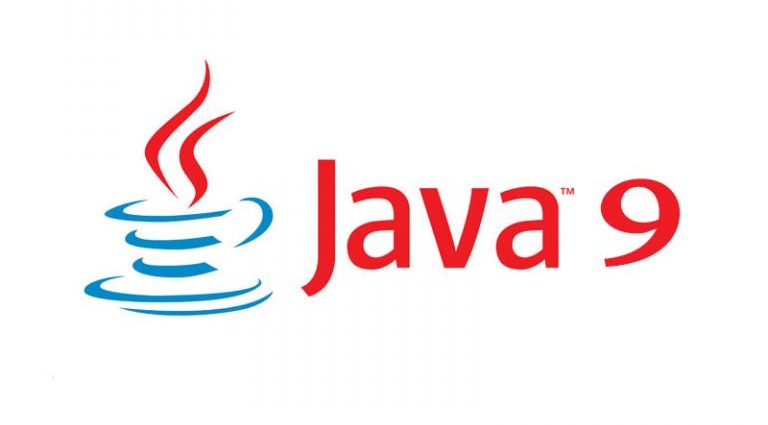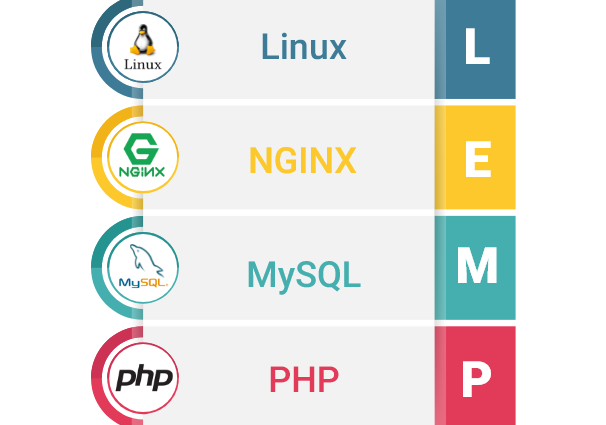This comprehensive Linux guide expects that you run the following commands as root user but if you decide to run the commands as a different user then ensure that the user has
sudoaccess and that you precede each of the privileged commands withsudo
Sometimes, it happens that the processes running on your system start behaving weirdly, and you need to kill the process(es) for the good of your system. Linux provides you with built-in utilities to do that using your command line.
In this tutorial, we will guide you the different ways to check and kill a process. But to do that, you first need to know the Process ID of the process.
Locating The Process
You can locate a process by following different ways
Using top Command
You can run the top command to display the list of running processes on your system.
root@codesposts:~$ top
top - 03:12:13 up 29 min, 1 user, load average: 0.05, 0.01, 0.03
Tasks: 188 total, 1 running, 144 sleeping, 0 stopped, 0 zombie
%Cpu(s): 3.5 us, 0.6 sy, 0.0 ni, 95.9 id, 0.0 wa, 0.0 hi, 0.0 si, 0.1 st
KiB Mem : 1935492 total, 134124 free, 807684 used, 993684 buff/cache
KiB Swap: 777300 total, 777300 free, 0 used. 842876 avail Mem
PID USER PR NI VIRT RES SHR S %CPU %MEM TIME+ COMMAND
1025 ubuntu 20 0 3862720 308244 115440 S 10.6 15.9 0:28.38 gnome-shell
793 ubuntu 20 0 720460 118040 60848 S 3.3 6.1 0:06.81 Xorg
2034 ubuntu 20 0 805784 39768 28328 S 1.7 2.1 0:01.40 gnome-terminal-
10 root 20 0 0 0 0 I 0.3 0.0 0:00.17 rcu_sched
1711 ubuntu 20 0 220928 8248 7512 S 0.3 0.4 0:00.10 ibus-engine-sim
2382 ubuntu 20 0 51308 4112 3372 R 0.3 0.2 0:00.24 top
1 root 20 0 225460 9200 6680 S 0.0 0.5 0:03.57 systemd
2 root 20 0 0 0 0 S 0.0 0.0 0:00.00 kthreadd
3 root 0 -20 0 0 0 I 0.0 0.0 0:00.00 rcu_gp
4 root 0 -20 0 0 0 I 0.0 0.0 0:00.00 rcu_par_gp
6 root 0 -20 0 0 0 I 0.0 0.0 0:00.00 kworker/0:0H-kb
7 root 20 0 0 0 0 I 0.0 0.0 0:00.13 kworker/u8:0-ev
8 root 0 -20 0 0 0 I 0.0 0.0 0:00.00 mm_percpu_wq
9 root 20 0 0 0 0 S 0.0 0.0 0:00.01 ksoftirqd/0
11 root rt 0 0 0 0 S 0.0 0.0 0:00.00 migration/0
12 root -51 0 0 0 0 S 0.0 0.0 0:00.00 idle_inject/0
13 root 20 0 0 0 0 I 0.0 0.0 0:00.33 kworker/0:1-mm_
14 root 20 0 0 0 0 S 0.0 0.0 0:00.00 cpuhp/0
15 root 20 0 0 0 0 S 0.0 0.0 0:00.00 cpuhp/1
16 root -51 0 0 0 0 S 0.0 0.0 0:00.00 idle_inject/1
17 root rt 0 0 0 0 S 0.0 0.0 0:00.00 migration/1
18 root 20 0 0 0 0 S 0.0 0.0 0:00.01 ksoftirqd/1
20 root 0 -20 0 0 0 I 0.0 0.0 0:00.00 kworker/1:0H-kb
21 root 20 0 0 0 0 S 0.0 0.0 0:00.00 cpuhp/2
22 root -51 0 0 0 0 S 0.0 0.0 0:00.00 idle_inject/2
23 root rt 0 0 0 0 S 0.0 0.0 0:00.00 migration/2
24 root 20 0 0 0 0 S 0.0 0.0 0:00.02 ksoftirqd/2
25 root 20 0 0 0 0 I 0.0 0.0 0:03.12 kworker/2:0-eve
26 root 0 -20 0 0 0 I 0.0 0.0 0:00.00 kworker/2:0H-kb
27 root 20 0 0 0 0 S 0.0 0.0 0:00.00 cpuhp/3
28 root -51 0 0 0 0 S 0.0 0.0 0:00.00 idle_inject/3
29 root rt 0 0 0 0 S 0.0 0.0 0:00.00 migration/3
30 root 20 0 0 0 0 S 0.0 0.0 0:00.02 ksoftirqd/3
32 root 0 -20 0 0 0 I 0.0 0.0 0:00.00 kworker/3:0H-kb
33 root 20 0 0 0 0 S 0.0 0.0 0:00.00 kdevtmpfs
34 root 0 -20 0 0 0 I 0.0 0.0 0:00.00 netns
35 root 20 0 0 0 0 S 0.0 0.0 0:00.00 rcu_tasks_kthre
36 root 20 0 0 0 0 S 0.0 0.0 0:00.00 kauditd You can see the PID and other information from the output of this command.
Using ps Command
You can also use ps command to display the processes running on your system. Run the command like below:
root@codesposts:~$ ps aux
USER PID %CPU %MEM VSZ RSS TTY STAT START TIME COMMAND
root 1 0.1 0.4 225460 9200 ? Ss 02:42 0:03 /sbin/init splash
root 720 0.0 0.5 311336 10908 ? Ssl 02:42 0:00 /usr/lib/policykit-1/polkitd --no-debug
root 730 0.0 1.0 194392 20140 ? Ssl 02:42 0:00 /usr/bin/python3 /usr/share/unattended-upgrades/unattended-upgrade-shutdown --wait-for-signal
root 743 0.0 0.4 308180 8144 ? Ssl 02:42 0:00 /usr/sbin/gdm3
root 762 0.0 0.4 419456 9068 ? Sl 02:42 0:00 gdm-session-worker [pam/gdm-autologin]
root 766 0.0 0.3 25988 6160 ? S 02:42 0:00 /sbin/dhclient -d -q -sf /usr/lib/NetworkManager/nm-dhcp-helper -pf /run/dhclient-ens3.pid -lf /var/lib/NetworkManager/dhclient-44975ba0-cd
ubuntu 772 0.0 0.4 77008 8340 ? Ss 02:42 0:00 /lib/systemd/systemd --user
ubuntu 773 0.0 0.1 114072 2668 ? S 02:42 0:00 (sd-pam)
ubuntu 786 0.0 0.3 288372 7028 ? SLl 02:42 0:00 /usr/bin/gnome-keyring-daemon --daemonize --login
ubuntu 790 0.0 0.3 212128 5924 tty1 Ssl+ 02:42 0:00 /usr/lib/gdm3/gdm-x-session --run-script env GNOME_SHELL_SESSION_MODE=ubuntu gnome-session --session=ubuntu
ubuntu 793 0.3 6.0 720268 117936 tty1 Rl+ 02:42 0:08 /usr/lib/xorg/Xorg vt1 -displayfd 3 -auth /run/user/1000/gdm/Xauthority -background none -noreset -keeptty -verbose 3
ubuntu 811 0.0 0.3 51560 5960 ? Ss 02:42 0:00 /usr/bin/dbus-daemon --session --address=systemd: --nofork --nopidfile --systemd-activation --syslog-only
ubuntu 814 0.0 0.8 569440 15896 tty1 Sl+ 02:42 0:00 /usr/lib/gnome-session/gnome-session-binary --session=ubuntu
ubuntu 933 0.0 0.0 11300 316 ? Ss 02:42 0:00 /usr/bin/ssh-agent /usr/bin/im-launch env GNOME_SHELL_SESSION_MODE=ubuntu gnome-session --session=ubuntu
ubuntu 948 0.0 0.3 291952 6956 ? Ssl 02:42 0:00 /usr/lib/gvfs/gvfsd
ubuntu 953 0.0 0.4 432020 7900 ? Sl 02:42 0:00 /usr/lib/gvfs/gvfsd-fuse /run/user/1000/gvfs -f -o big_writes
ubuntu 968 0.0 0.4 367828 8752 ? Ssl 02:42 0:00 /usr/lib/at-spi2-core/at-spi-bus-launcher
ubuntu 976 0.0 0.2 49924 4220 ? S 02:42 0:00 /usr/bin/dbus-daemon --config-file=/usr/share/defaults/at-spi2/accessibility.conf --nofork --print-address 3
ubuntu 979 0.0 0.3 220776 6804 ? Sl 02:42 0:00 /usr/lib/at-spi2-core/at-spi2-registryd --use-gnome-session
ubuntu 1025 1.4 15.9 3863552 308896 tty1 Rl+ 02:42 0:34 /usr/bin/gnome-shell
root 1032 0.0 0.4 322316 8732 ? Ssl 02:42 0:00 /usr/lib/upower/upowerd
ubuntu 1053 0.0 0.6 1172140 11776 ? S<l 02:42 0:00 /usr/bin/pulseaudio --start --log-target=syslog
rtkit 1054 0.0 0.1 183500 3056 ? SNsl 02:42 0:00 /usr/lib/rtkit/rtkit-daemon
ubuntu 1068 0.0 0.5 377536 9692 tty1 Sl 02:42 0:00 ibus-daemon --xim --panel disable
ubuntu 1070 0.0 0.2 271560 5168 ? Ssl 02:42 0:00 /usr/libexec/xdg-permission-store
whoopsie 1086 0.0 0.6 392828 12944 ? Ssl 02:42 0:00 /usr/bin/whoopsie -f
kernoops 1091 0.0 0.0 56936 416 ? Ss 02:42 0:00 /usr/sbin/kerneloops --test
kernoops 1096 0.0 0.0 56936 424 ? Ss 02:42 0:00 /usr/sbin/kerneloops
ubuntu 1139 0.0 0.4 296784 8432 tty1 Sl 02:42 0:00 /usr/lib/ibus/ibus-dconf
ubuntu 1142 0.0 1.1 356260 22220 tty1 Sl 02:42 0:00 /usr/lib/ibus/ibus-x11 --kill-daemon
ubuntu 1149 0.0 0.4 294596 8516 ? Sl 02:42 0:00 /usr/lib/ibus/ibus-portal
ubuntu 1178 0.0 1.1 696516 22016 ? Sl 02:42 0:00 /usr/lib/gnome-shell/gnome-shell-calendar-server
ubuntu 1184 0.0 1.3 694404 25976 ? Ssl 02:42 0:00 /usr/lib/evolution/evolution-source-registry
ubuntu 1193 0.0 1.6 778304 31596 ? Sl 02:42 0:00 /usr/lib/gnome-online-accounts/goa-daemon
ubuntu 1202 0.0 0.5 319548 9736 ? Sl 02:42 0:00 /usr/lib/gnome-online-accounts/goa-identity-service
root 1210 0.0 0.4 315228 8944 ? Ssl 02:42 0:00 /usr/lib/x86_64-linux-gnu/boltd
ubuntu 1215 0.0 0.5 320052 10608 ? Ssl 02:42 0:00 /usr/lib/gvfs/gvfs-udisks2-volume-monitor
ubuntu 1219 0.0 0.3 288656 6608 ? Ssl 02:42 0:00 /usr/lib/gvfs/gvfs-gphoto2-volume-monitor
ubuntu 1223 0.0 0.3 378812 7416 ? Ssl 02:42 0:00 /usr/lib/gvfs/gvfs-afc-volume-monitor
ubuntu 1228 0.0 0.2 275868 4964 ? Ssl 02:42 0:00 /usr/lib/gvfs/gvfs-mtp-volume-monitor
You can also filter your output for a specific process using pipe with grep command.
root@codesposts:~$ ps aux | grep java
ubuntu 2417 0.0 0.0 21532 1116 pts/0 S+ 03:25 0:00 grep --color=auto javaThis will only display the processes containing the keyword “java” in them.
Using pidof/pgrep Command
You can find the PID of a specific process by running the command like below:
root@codesposts:~$ pidof bash
2044
OR
root@codesposts:~$ pgrep bash
2044Note the PID and Name of the process you want to kill.
Killing The Process
You can kill a process by the following ways
Killing A Process By PID
You can kill the process by using PID by executing kill command.
There are different signals available to be used with the kill command. you can display them by running the following command:
root@codesposts:~$ kill -l
1) SIGHUP 2) SIGINT 3) SIGQUIT 4) SIGILL 5) SIGTRAP
6) SIGABRT 7) SIGBUS 8) SIGFPE 9) SIGKILL 10) SIGUSR1
11) SIGSEGV 12) SIGUSR2 13) SIGPIPE 14) SIGALRM 15) SIGTERM
16) SIGSTKFLT 17) SIGCHLD 18) SIGCONT 19) SIGSTOP 20) SIGTSTP
21) SIGTTIN 22) SIGTTOU 23) SIGURG 24) SIGXCPU 25) SIGXFSZ
26) SIGVTALRM 27) SIGPROF 28) SIGWINCH 29) SIGIO 30) SIGPWR
31) SIGSYS 34) SIGRTMIN 35) SIGRTMIN+1 36) SIGRTMIN+2 37) SIGRTMIN+3
38) SIGRTMIN+4 39) SIGRTMIN+5 40) SIGRTMIN+6 41) SIGRTMIN+7 42) SIGRTMIN+8
43) SIGRTMIN+9 44) SIGRTMIN+10 45) SIGRTMIN+11 46) SIGRTMIN+12 47) SIGRTMIN+13
48) SIGRTMIN+14 49) SIGRTMIN+15 50) SIGRTMAX-14 51) SIGRTMAX-13 52) SIGRTMAX-12
53) SIGRTMAX-11 54) SIGRTMAX-10 55) SIGRTMAX-9 56) SIGRTMAX-8 57) SIGRTMAX-7
58) SIGRTMAX-6 59) SIGRTMAX-5 60) SIGRTMAX-4 61) SIGRTMAX-3 62) SIGRTMAX-2
63) SIGRTMAX-1 64) SIGRTMAX
Most commenly used signals are 1,9 and 15. If you want to hangup the process, you can use 1. If you want to kill a process without saving it’s content, you can use the signal 9. If you want to kill the process and saving the contents before killing, you can use the signal 15.
root@codesposts:~$ kill -9 2044 This command will kill the process with PID 2044 without saving the contents.
Killing A Process By Name
You can kill a process using it’s name by executing the killall command.
root@codespsots:~$ killall httpdKilling A Process Using pkill Command
You can also use the pkill command to kill a process if you know the name of the process.
root@codesposts:~$ pkill httpdYou can also use different options with the pkill command.
root@codesposts:~$ pkill --help
Usage:
pkill [options] <pattern>
Options:
-<sig>, --signal <sig> signal to send (either number or name)
-e, --echo display what is killed
-c, --count count of matching processes
-f, --full use full process name to match
-g, --pgroup <PGID,...> match listed process group IDs
-G, --group <GID,...> match real group IDs
-i, --ignore-case match case insensitively
-n, --newest select most recently started
-o, --oldest select least recently started
-P, --parent <PPID,...> match only child processes of the given parent
-s, --session <SID,...> match session IDs
-t, --terminal <tty,...> match by controlling terminal
-u, --euid <ID,...> match by effective IDs
-U, --uid <ID,...> match by real IDs
-x, --exact match exactly with the command name
-F, --pidfile <file> read PIDs from file
-L, --logpidfile fail if PID file is not locked
--ns <PID> match the processes that belong to the same
namespace as <pid>
--nslist <ns,...> list which namespaces will be considered for
the --ns option.
Available namespaces: ipc, mnt, net, pid, user, uts
-h, --help display this help and exit
-V, --version output version information and exit
Killing A Process Using top Command
You can also kill a process using the top command. Just run the top command in your terminal and note the PID of the process you want to kill, then press k while keeping the top command running and it will ask you for the PID of the process you want to kill.
root@codesposts:~$ top
top - 04:23:14 up 1:40, 1 user, load average: 0.00, 0.00, 0.00
Tasks: 195 total, 1 running, 152 sleeping, 0 stopped, 0 zombie
%Cpu(s): 0.6 us, 0.1 sy, 0.0 ni, 99.0 id, 0.2 wa, 0.0 hi, 0.0 si, 0.0 st
KiB Mem : 1935492 total, 195672 free, 820008 used, 919812 buff/cache
KiB Swap: 777300 total, 776520 free, 780 used. 831924 avail Mem
PID to signal/kill [default pid = 1025]
PID USER PR NI VIRT RES SHR S %CPU %MEM TIME+ COMMAND
1025 ubuntu 20 0 3862528 309512 115560 S 41.2 16.0 1:13.90 gnome-shell
793 ubuntu 20 0 720268 117936 60744 S 17.6 6.1 0:19.74 Xorg
3053 root 20 0 51348 4128 3424 R 5.9 0.2 0:00.02 top
1 root 20 0 225460 9200 6680 S 0.0 0.5 0:03.69 systemd
2 root 20 0 0 0 0 S 0.0 0.0 0:00.00 kthreadd
3 root 0 -20 0 0 0 I 0.0 0.0 0:00.00 rcu_gp
4 root 0 -20 0 0 0 I 0.0 0.0 0:00.00 rcu_par_gp
6 root 0 -20 0 0 0 I 0.0 0.0 0:00.00 kworker/0:0H-kb
8 root 0 -20 0 0 0 I 0.0 0.0 0:00.00 mm_percpu_wq
9 root 20 0 0 0 0 S 0.0 0.0 0:00.02 ksoftirqd/0
10 root 20 0 0 0 0 I 0.0 0.0 0:00.35 rcu_sched
11 root rt 0 0 0 0 S 0.0 0.0 0:00.02 migration/0
12 root -51 0 0 0 0 S 0.0 0.0 0:00.00 idle_inject/0
13 root 20 0 0 0 0 I 0.0 0.0 0:00.48 kworker/0:1-eve
14 root 20 0 0 0 0 S 0.0 0.0 0:00.00 cpuhp/0
15 root 20 0 0 0 0 S 0.0 0.0 0:00.00 cpuhp/1
16 root -51 0 0 0 0 S 0.0 0.0 0:00.00 idle_inject/1
17 root rt 0 0 0 0 S 0.0 0.0 0:00.01 migration/1
18 root 20 0 0 0 0 S 0.0 0.0 0:00.01 ksoftirqd/1
20 root 0 -20 0 0 0 I 0.0 0.0 0:00.00 kworker/1:0H-kb
21 root 20 0 0 0 0 S 0.0 0.0 0:00.00 cpuhp/2
22 root -51 0 0 0 0 S 0.0 0.0 0:00.00 idle_inject/2
23 root rt 0 0 0 0 S 0.0 0.0 0:00.01 migration/2
24 root 20 0 0 0 0 S 0.0 0.0 0:00.02 ksoftirqd/2
25 root 20 0 0 0 0 I 0.0 0.0 0:03.29 kworker/2:0-eve
26 root 0 -20 0 0 0 I 0.0 0.0 0:00.00 kworker/2:0H-kb
27 root 20 0 0 0 0 S 0.0 0.0 0:00.00 cpuhp/3
28 root -51 0 0 0 0 S 0.0 0.0 0:00.00 idle_inject/3
29 root rt 0 0 0 0 S 0.0 0.0 0:00.02 migration/3
30 root 20 0 0 0 0 S 0.0 0.0 0:00.02 ksoftirqd/3
32 root 0 -20 0 0 0 I 0.0 0.0 0:00.00 kworker/3:0H-kb
33 root 20 0 0 0 0 S 0.0 0.0 0:00.00 kdevtmpfs
34 root 0 -20 0 0 0 I 0.0 0.0 0:00.00 netns
35 root 20 0 0 0 0 S 0.0 0.0 0:00.00 rcu_tasks_kthre
36 root 20 0 0 0 0 S 0.0 0.0 0:00.00 kauditd
37 root 20 0 0 0 0 S 0.0 0.0 0:00.00 khungtaskd
38 root 20 0 0 0 0 S 0.0 0.0 0:00.00 oom_reaper
39 root 0 -20 0 0 0 I 0.0 0.0 0:00.00 writeback
40 root 20 0 0 0 0 S 0.0 0.0 0:00.08 kcompactd0
41 root 25 5 0 0 0 S 0.0 0.0 0:00.00 ksmd
42 root 39 19 0 0 0 S 0.0 0.0 0:00.00 khugepaged
43 root 0 -20 0 0 0 I 0.0 0.0 0:00.00 crypto 







